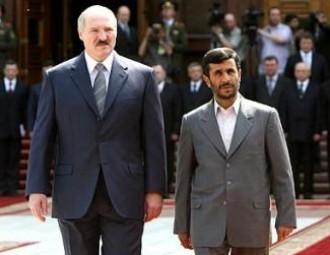Aliaksandr Alesin: US sanctions is a result of Belarusan common geopolitical policy

Belarusan enterprises will find a way to avoid US sanctions. All the more that under years when restrictive measures towards Belarusan enterprises have been practiced such technologies are well-tried.
This was reported in the talk with the EuroBelarus Information Service by the military analyst of “Belarusans and market” paper Aliaksandr Alesin, when he commented upon the consequence of new sanctions introduced by the US in relation to 2 Belarusan enterprises.
Let us recall that TM Services Limited and KB Radar are accused of abusing Nonproliferation Act, notably for the transfer to or acquisition from Iran, Syria, North Korea of goods, services, or technology controlled under multilateral control lists or otherwise having the potential to make a material contribution to the development of weapons of mass destruction or cruise or ballistic missile systems.
According to Aliaksandr Alesin, these are only allegations, as enterprises are dealing with the software, radar and electronic warfare development and production, i.e. defence technologies. By applying these sanctions the US are most likely to remove the companies that are selling high-tech production to Iran and Syria off the market so that the potential adversary won’t be able to fortify its air defence.
These sanctions will hardly harm TM Services Limited and KB Radar seriously, as the methods to escape such restrictions have long ago been perfected in Belarus, believes Aliaksandr Alesin. At the same time Iran can hardly be protected from the entry of high-tech technologies.
“An exhaustive embargo can be established only in correspondence with the UN sanctions. If this embargo is local, then it is backed up only by its supporters. For instance, US sanctions can be supported only by the NATO countries. What concerns Southern Korea, Indonesia, Malaysia and other countries which produce high-tech components, they will not pay any attention to these measures”, assumes the military analyst. According to his words, current sanctions are of a more “psychological, informative character”.
“It is more of a public image stroke, and there have been many of such strokes before. Very often there are no concrete goods or bargain behind them; they are only precautionary significant. In this very case the aim is to avert Belarus from delivery of high-tech goods and dual-purpose production to the countries where such export is undesirable for the US”, - assumes Aliaksandr Alesin.
He also notes that the “echo of Belarusan foreign policy” is present in practice of such sanctions, though he sees no direct connection between the actions of the US State Department and the actions of Belarusan authorities.
Still, Aliaksandr Alesin is convinced that if Belarus changes its current pro-Russian vector towards the pro-European one, there will be no complaints from the US side.
“If Belarus pursued a policy somewhat remote from Russia, then I think there wouldn’t be such sanctions from the US side. Thus, these restrictions are the consequence of the common geopolitical policy of Belarus, which becomes more and more Russia-oriented. And we have practically no access to the West; both in the political and in the military sphere”, - stated Aliaksandr Alesin.
-
03.01
-
07.10
-
22.09
-
17.08
-
12.08
-
30.09








































